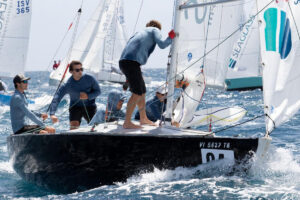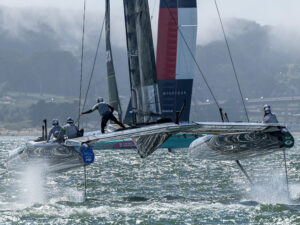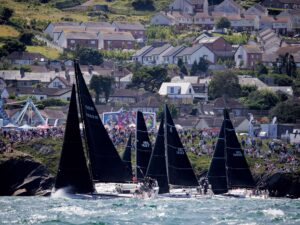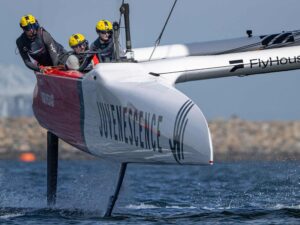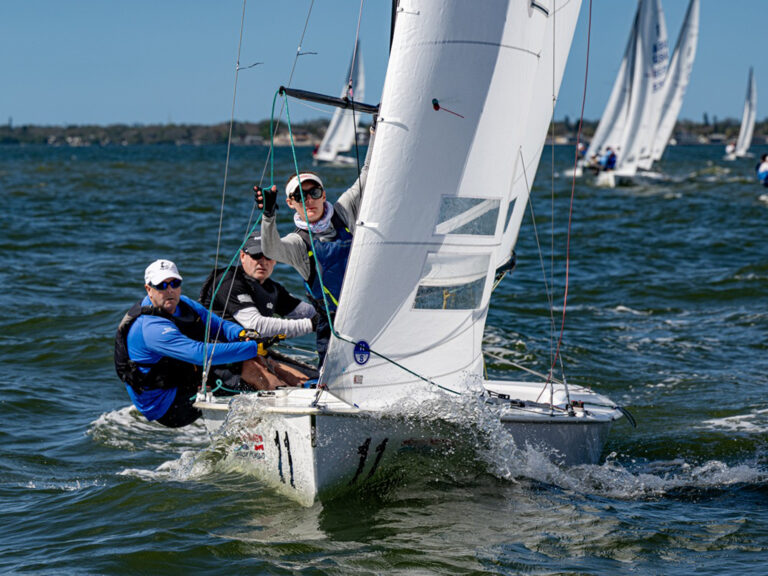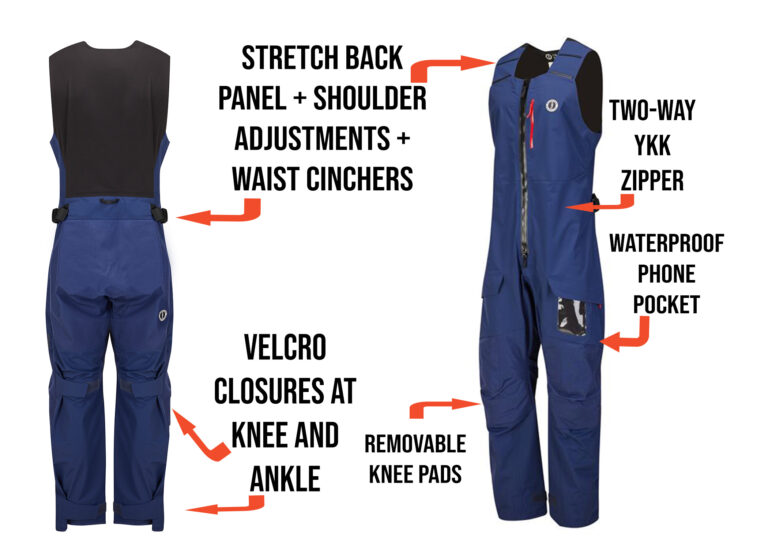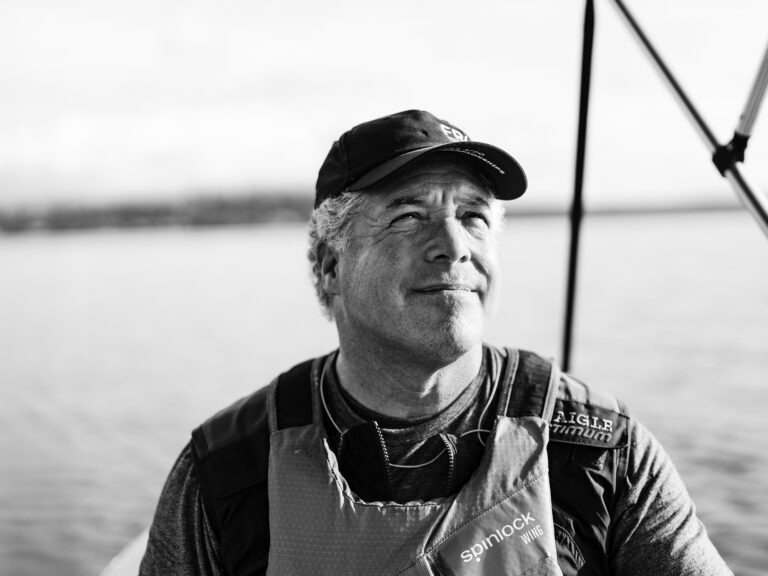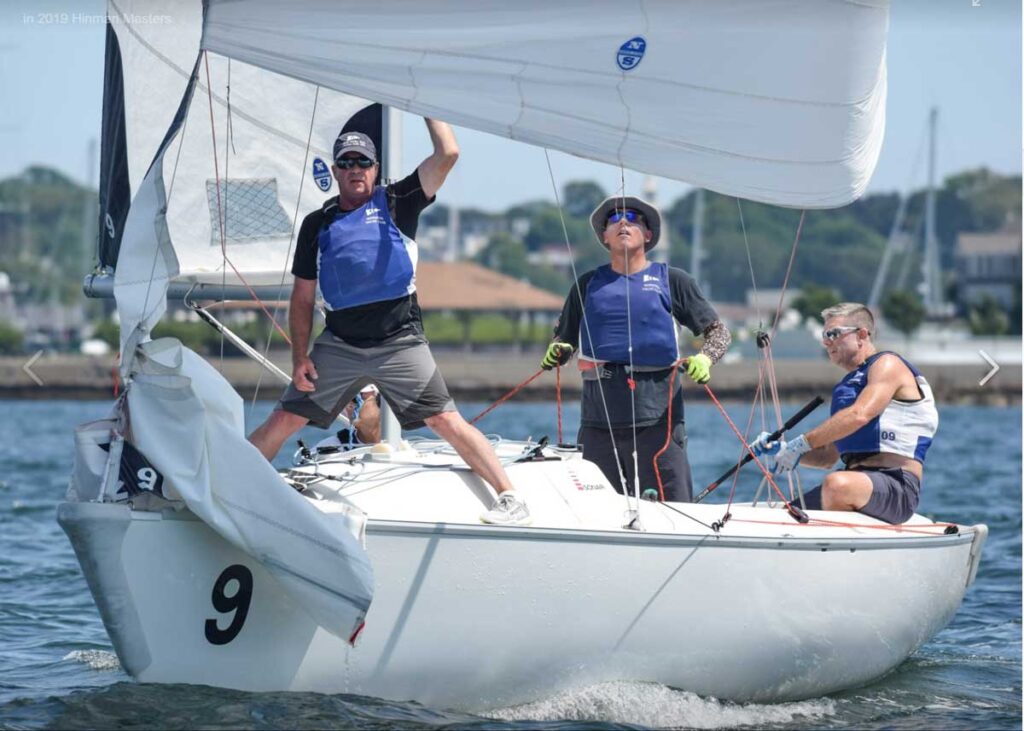
Bill Crane, former chairman of the LaserPerformance Group, and several influential marine industry experts and professionals recently announced the launch of Storm Marine Group, which aims to “dramatically change the approach to building and maintaining institutional sailboats in the United States.”
In an announcement from the new company, Crane said, “My partners and I have all grown up sailing and racing institutional boats, whether it be Ideal 18s, the Sonar or various other classes, most of our time on the water has been sailing in club-owned fleets. We have a passion for these boats and want to build something that elevates the sport through new institutional boats that are affordable, durable, and easy to maintain.”
Many institutional boats used in the United States, the company says, are designed for private clubs, public sailing centers and schools, and are built to accommodate two to five sailors. In addition, they say, most of these historically popular classes are either no longer built, hard to replace and find parts for, or manufactured overseas at too high an expense for most US-based sailing organizations.
“We’ve all been the beneficiaries of institutional sailing all of our lives,” says the company’s managing partner, Karl Ziegler, whose background combines a history in business management, international sailing and coaching. “All of us see this as a mission and a passion and have a genuine desire to give back to the sport we love and help literally build its future.”
The venture, they say, has been a long time coming, prompted by a perceived COVID-era participation boom at sailing community establishments, private sailing schools, and yacht clubs around the country. “COVID brought sailing back to Marblehead (Massachusetts) in a big way,” says Robbie Doyle, a National Sailing Hall of Fame inductee. “I told Bill (Crane) about all the calls we were getting from people either interested in learning to sail or getting back into the sport, and they seemed more interested in joining clubs and using boats from house fleets rather than buying their own boat.”
Chris Daley, SMG’s third partner, said, “We’ve spent years talking about what’s wrong with the current equipment, and since all of us have ample experience in business and sailing, we think now is finally the time to do more than talk about it.”
Crane says he and his team are getting calls from all over the country as sailing organizations
struggle with aging fleets and associated replacement costs: “We concluded that there is a fairly immediate need for versatile boats that can serve beginners learning to sail and fleet sailors that race every Wednesday. They need to be relatively inexpensive, simple, stable and easy to sail, but also offer enough performance to surprise and delight the more experienced sailors.”
Crane also noted that boat design in all sizes has traditionally neglected the needs of women and the physically challenged, and that his team is developing ideas that will address those
constituencies as well. The World Sailing Trust recently put forward several recommendations
about meeting the needs of women sailors and is actively working with leaders in the industry to develop best practice guidance for gender equal design, which Crane says SMG will participate in. Crane also says the company is working with officials at US Sailing and other experts on the needs of the adaptive sailing community.
The company plans to formally announce details of its first major project, an 18-foot keelboat, in the coming the weeks.

